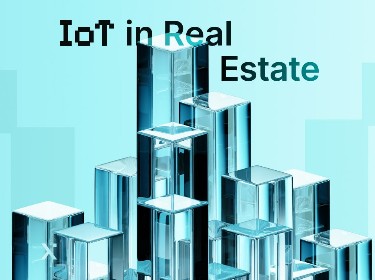In 2024, we were caught off-guard by then-little-known NFTs and were wondering how long they would stay afloat. Now it’s 2025. NFTs are on the crest of a wave and don’t raise eyebrows anymore. But get ready to welcome metaverse — another extraordinary and very promising trend.
In this day and age, it’s getting hard to resist the power of technology. Great innovations are abundant and pop up on a regular basis. We’re already familiar with AI, blockchain, and NFTs – but do you remember the times when these were terra incognita that raised doubt and skepticism among many people?
The metaverse is on the agenda for 2025 and probably beyond. We are yet to explore its capabilities, hear different opinions about its viability, see multiple related metaverse use cases, and, not least, feel its impact on ourselves.
Although the concept of the metaverse is not new, it became a buzzword and the most talked-about trend after Facebook changed its name to Meta. According to one study, the total market value of the metaverse is expected to grow to a whopping $828.95 billion by 2028, which is undoubtedly very impressive.
However, lots of people still don’t get what exactly the metaverse is and how they can benefit from it. Is it just marketing hype or a ground-breaking technological breakthrough that should be taken seriously? Let’s find out!
In principio erat verbum or a bit of history of the metaverse
The term “metaverse” is a portmanteau of the prefix ‘meta’ (i.e. more comprehensive or transcending) and the word ‘universe’. It was first coined in 1992 by Neal Stephenson in his cyberpunk sci-fi novel “Snow Crash.” In the work, the metaverse is a convergence of physical, virtual, and augmented realities where people appear as avatars that can interact with one another in a shared 3D virtual space. Though there are several other science fiction media describing metaverse ecosystems, Stephenson’s “Snow Crash” is still one of the most common references for metaverse evangelists.
What is the metaverse really?
![]()
The metaverse is an interoperable network consisting of real-time rendered 3D virtual worlds that can be accessed with the help of special AR/VR hardware. It also employs tools such as social media, online gaming, and even NFTs and cryptocurrencies that allow people to enjoy the full gamut of experiences in the virtual space.
Once in the metaverse, people can create and customize their own digital representations (avatars) and choose their body parameters: hair color, clothes, accessories, and so on.
The metaverse has the potential to upend the way we live, work, study, socialize, play, shop, and carry out many other activities. Essentially, as the metaverse accelerates at an exponential rate, it will enable us to build online spaces where our interactions will become more multidimensional compared to those that the current technology can support. This means that we will be able to immerse ourselves in an even more extraordinary convergence of the digital and physical worlds and unleash many more opportunities.
Notably, professionals and brands across all industries will be able to establish a virtual presence and build their businesses in the metaverse, thereby staying on the same wavelength as their customers.
To get a more comprehensive overview of the metaverse and its current capabilities, we suggest watching an explanatory video prepared by the PixelPlex team that covers the essentials of the trending tech.
Why has Facebook been obsessed with the metaverse?
Though – as we’ve discovered – the concept of the metaverse is not that new, its popularity suddenly surged at the end of 2021. The reason for this was the famous Facebook name change to Meta.
During Facebook’s annual AR/VR conference that took place in October 2021, Mark Zuckerberg shared his vision of the company’s future, highlighting Meta’s focus on the metaverse and pointing out how it will support NFTs. Interestingly, the company has been enthusiastic about virtual reality for a long time: back in 2014, it acquired Oculus, the leader in immersive virtual reality technology.
When explaining why Meta has taken a keen interest in the phenomenon, Zuckerberg said:
“The defining quality of the metaverse will be a feeling of presence — like you are right there with another person or in another place. Feeling truly present with another person is the ultimate dream of social technology.”
Zuckerberg believes that the metaverse will reach a billion users within the next ten years. The Facebook founder also stressed that the company already piloted two beta metaverse projects in 2021– Horizon Worlds and Horizon Workrooms. Horizon Worlds empowers users to invite their friends into their digital world and hang out there while Horizon Workrooms offers the same experience but in professional settings.
In addition, Mark Zuckerberg reckons that AR glasses will soon be as widespread as smartphones and that the notion of the metaverse itself is “the successor to the mobile internet.” Well, who knows – let’s wait and see!
Importantly, Facebook – aka Meta – is not the only company that has started exploring the metaverse. Apple, Google, and Microsoft are also among the pioneers who have paid heed to the now-most-talked-about trend.
Now is the time to pop some popcorn and keep a watchful eye on how events will unfold and what metaverse-related innovations different firms will come up with. Or, probably it’s even better to kickstart embracing the metaverse ourselves and take steps towards a virtual-reality future.
Get more insights about this VR real estate platform that can generate superb 360° virtual tours
What technologies is the metaverse reliant on?
![]()
Augmented and virtual reality technologies (AR/VR) are the pillars of all metaverse projects. Their usage will go alongside the expansion of the metaverse and contribute to the development of many more features. Yet, it is true to admit that the concept of the metaverse is projected to go beyond just augmented and virtual reality development, since the technology is poised to connect people in previously unheard-of ways.
As of now, the metaverse is expected to leverage a set of advanced tools, including blockchain, crypto, NFTs, artificial intelligence, and 5G. Let’s consider in detail how each of these technologies will benefit the metaverse.
Blockchain development company can help implement blockchain for storing and exchanging data within different metaverse platforms as well as ensuring digital proof of ownership for assets within the metaverse.
Cryptocurrencies will shape the virtual economy and become the legal tender in the virtual space.
Non-fungible tokens will give people ownership of their avatars and in-game purchases within the metaverse and will even allow them to register virtual lands in their names.
Artificial intelligence will assist in developing enormously smart agents capable of learning from their environment and even evolving to take control of the environment.
5G will deliver the blazing-fast speeds required for this type of digital transformation.
As the metaverse expands, it will probably engage many other technologies that will improve its functionality and bring novel and extraordinary features to the space.
Want to find out how to use and launch NFTs in the metaverse? We can help you with that
What are the challenges of the metaverse?
In spite of all its potential and unique capabilities, the metaverse has some challenges. Currently, the metaverse is still terra incognita to most of us. We don’t possess much knowledge and experience of the notion and can’t be sure whether it will exert a positive or negative impact on us in the long run. Plus, it now raises some concerns about legal aspects. Even though the metaverse will provide individuals with unique boons, it can also generate legal issues if no virtual jurisdiction is in place.
There may also be some issues related to intellectual property ownership. Content creators may struggle with protecting their works since it might be difficult (at least in the beginning) to keep track of copyright infringement in the virtual world.
Another potential issue worth highlighting is ethics. The metaverse will enable you to become anything or anyone you want – but you won’t be able to establish full control over your digital self. Your identity in the digital space can be canceled at any time by a corporation.
Of course, there are many other privacy challenges that need to be addressed. While everyone is currently enthusiastic about the metaverse hype and focused on its positive aspects, we should consider its downsides and think up effective solutions before those issues become overwhelming and interfere with the positive vibe around the entire metaverse technology.
What are the prospects of the metaverse and how will it shape the future?
![]()
Despite the fact that right now it’s too early to make concrete predictions about how the metaverse will impact our lives, some experts predict that a large number of people will be living in the metaverse by 2030.
If the metaverse is successfully launched, it can help us find new ways to relax, work, and hang out with others. So, for example, visitors can enjoy more immersive social chats with their friends while gaming lovers can explore a range of extraordinary opportunities and feel as if they are part of their favorite games.
Moreover, the metaverse can offer cool alternatives to boring office life by paving the way for the development of sophisticated virtual offices that will empower teams to hold 3D meetings, bringing variety to office life and making them feel like they are sitting next to each other. Importantly, the metaverse might be even able to integrate with office software and other technologies and open up new opportunities for creating and showing presentations, working collectively on projects from different locations, and much more.
If people start spending more time in the metaverse, it’s probable that virtual clothing, accessories, and cosmetics will become an important part of our daily virtual lives. Brands and businesses will take advantage and capitalize on demand by producing virtual products that will be popular among the new segment of consumers.
Apparently, the brave new technology can introduce many more never-seen-and-felt-before opportunities and allow us to savor extraordinary experiences.
Get more insights into this virtual reality 360° image sharing platform
How can you make money with the metaverse?
![]()
Apart from changing our style of communication, the metaverse can also alter the way we generate income. Our metaverse development company collected some possible methods and strategies for making money in the metaverse.
Gaming
Gaming is believed to be one of the most popular activities in the metaverse. Blockchain-powered games alongside non-fungible tokens have paved the way for a revolutionary play-to-earn (P2E) gaming model. With P2E, gamers can establish ownership and control over their in-game assets and trade them for money in the metaverse environments. Game developers, on their side, can create exclusive and engaging games on existing metaverse platforms such as Decentraland and The Sandbox, and make money too.
Concerts and performances
Organizing concerts in the metaverse space will be much easier than in real life. The Sandbox platform, for example, has already introduced its users to a unique opportunity: it allows them to buy land, build properties, and hold any activities they like. Snoop Dog is one of many celebrities who have entered the game. He constructed a mansion in The Sandbox Metaverse and launched an NFT collection comprising VIP tickets to his private party shows in the meta space.
Real estate operations
These days, people are paying enormous sums of money for decentralized lands. In November 2021, Decentraland, the blockchain-powered online world, sold a patch of virtual real estate for an eye-popping $2.4 million worth of cryptocurrency.
It’s pretty obvious that decentralized plots will be quite popular in the metaverse space since they come with multiple ways for generating revenue, namely:
Renting: you can buy a plot of land and/or build a house and rent it out to others. Or, you can use your property for advertising – just like in real life.
Flipping: in the metaverse, you will be able to buy virtual properties and resell them at higher prices.
Brokering: given that decentralized lands will enjoy popularity in the metaverse, there will be a need for real estate agents to help carry out business deals and bring buyers and sellers together.
Discover how real estate can benefit from VR and AR solutions
Art
The NFT art market has been flourishing. To date, multiple NFT art pieces have been created and sold, sometimes at exorbitant prices. The metaverse, in fact, will contribute to an even wider promotion of NFTs, allowing people to easily trade, showcase, and enjoy their NFT collectibles. Moreover, in December 2021, the Pixlr Genesis ecosystem announced that it was targeted to become the largest decentralized art museum on the metaverse, providing a place where NFT artists, collectors, and enthusiasts can come together and enjoy fruitful cooperation.
Business development
The metaverse undoubtedly offers outstanding facilities for entrepreneurs, enabling literally anyone to start their own business much more quickly and efficiently than they could in the real world. Several popular brands have been quick off the mark and embraced the metaverse. Adidas, for example, has launched a line of NFTs called “Into the Metaverse” that provides its buyers with access to a very exclusive fan club.
What’s next?
The metaverse is an extraordinarily exciting notion that has captured the imagination of everyone: from global corporations seeking new sources of revenue and ways of engaging customers to amateurs who are keen to explore the technology’s full potential and test new approaches to socializing, playing, working, and studying.
However, it must be said that the metaverse is still in its infancy, meaning that there’s still a long way to go before everyone can immerse themselves in a virtual world. No one can guarantee that the new digital world will be free from imperfections. In particular, some privacy challenges will have to be overcome if the metaverse is to be embraced globally.
But let’s be honest – the idea of the metaverse is captivating. Even if you’re not ready to give up on real life, why not simply engage with the technology for the sake of sheer curiosity or explore it as a novel source of revenue?
If you’ve decided to give the metaverse a go, consider PixelPlex your Polar star in this uncharted space. Our NFT development services can help create NFTs and ecosystem for them, as well as develop blockchain games in the metaverse that will help you stay ahead of the curve and get to know the new world better. Don’t be afraid of the future — let’s shape it together!




